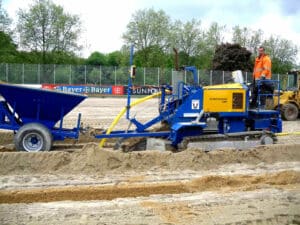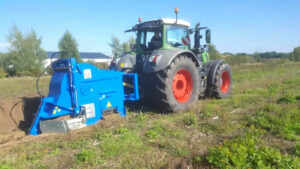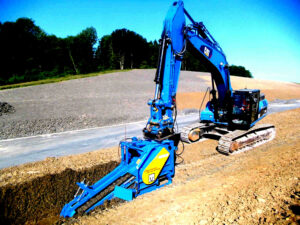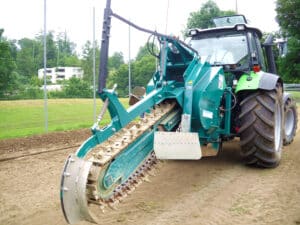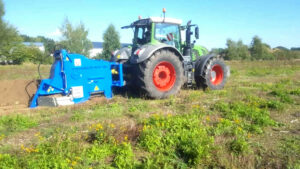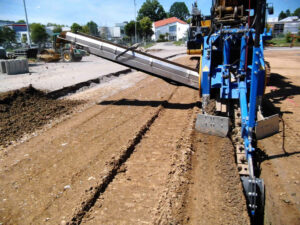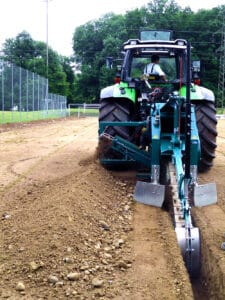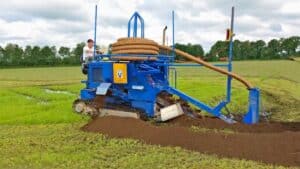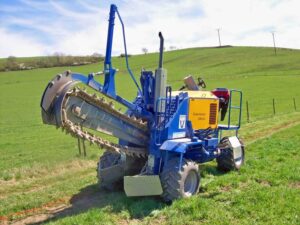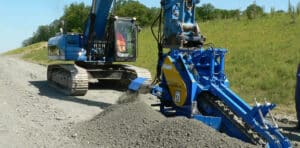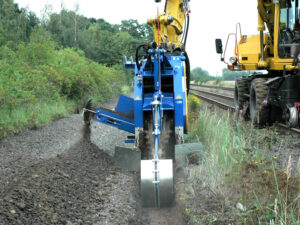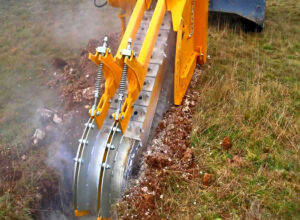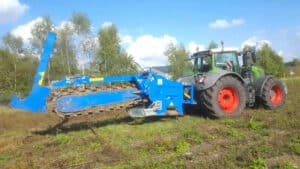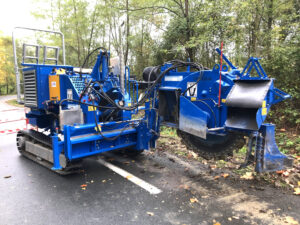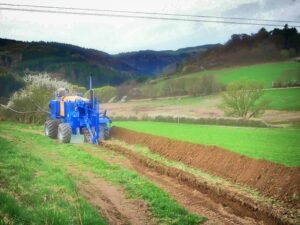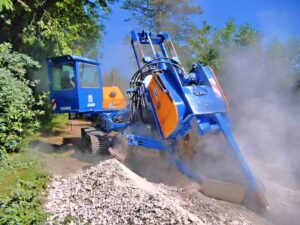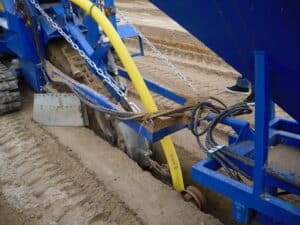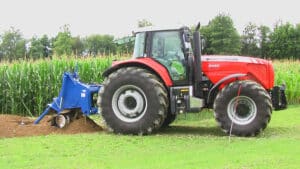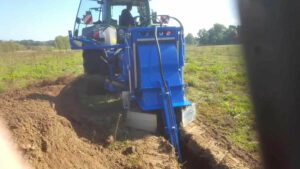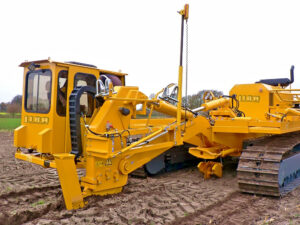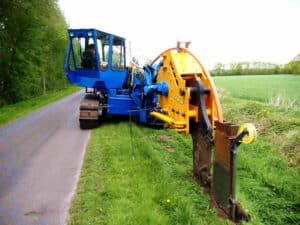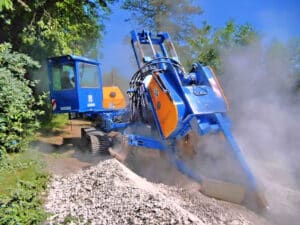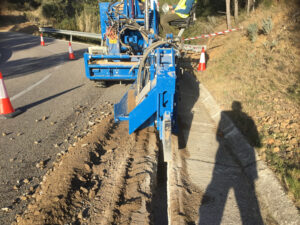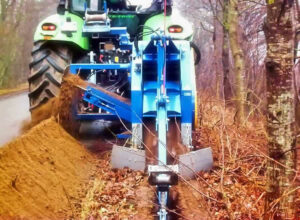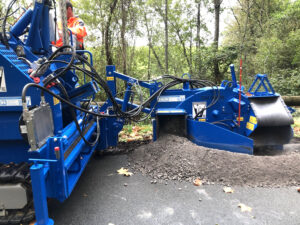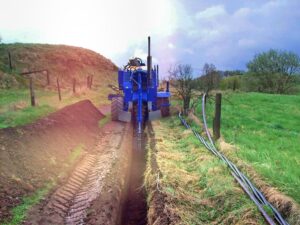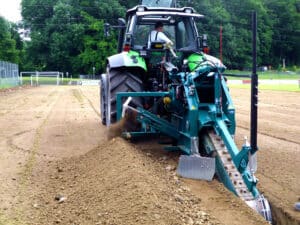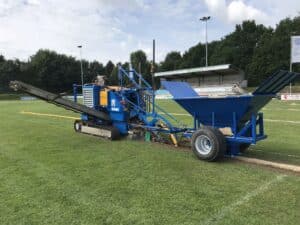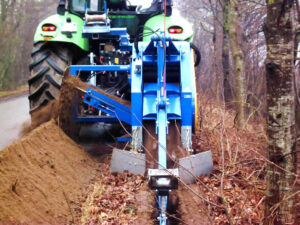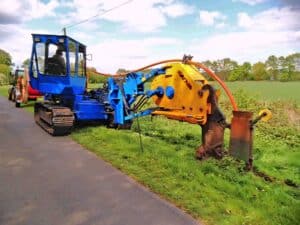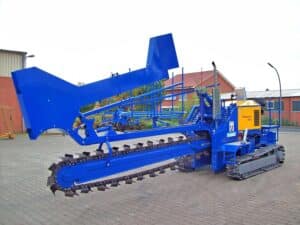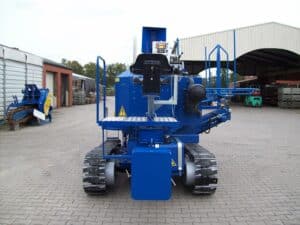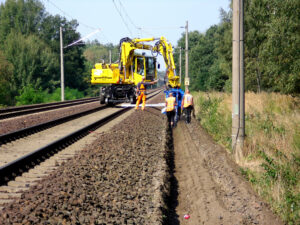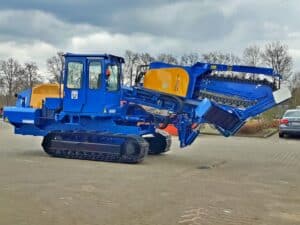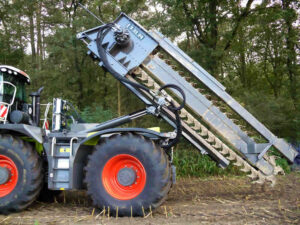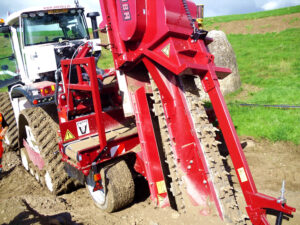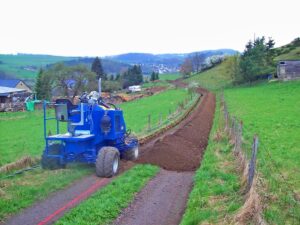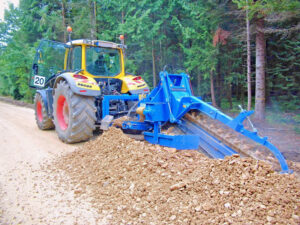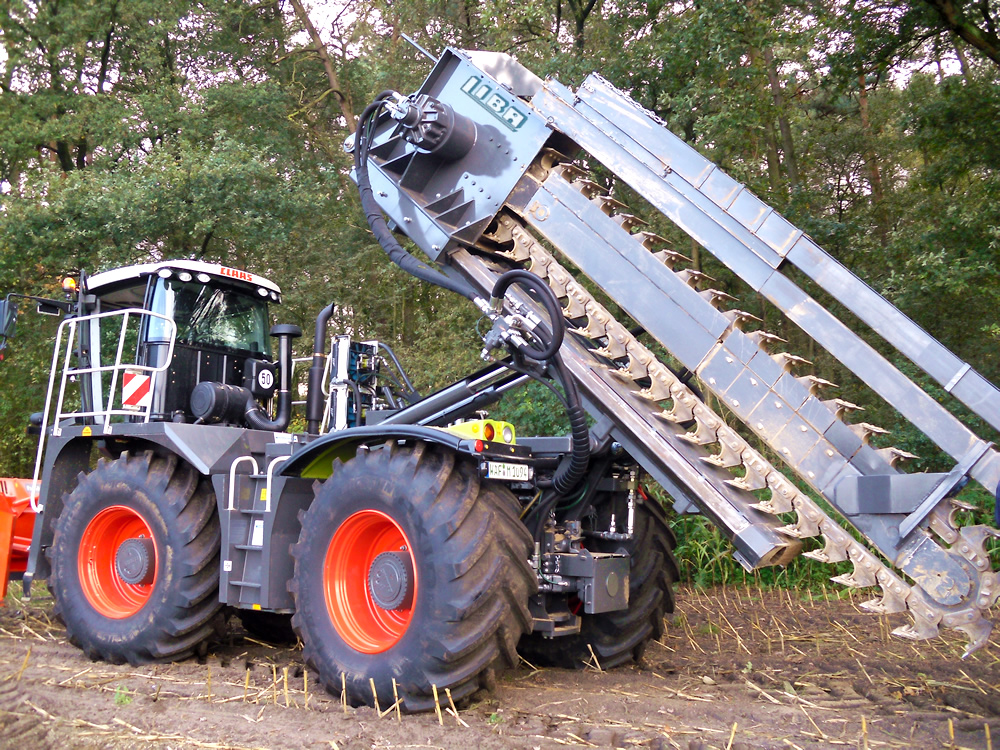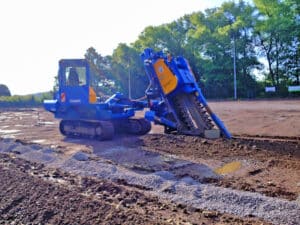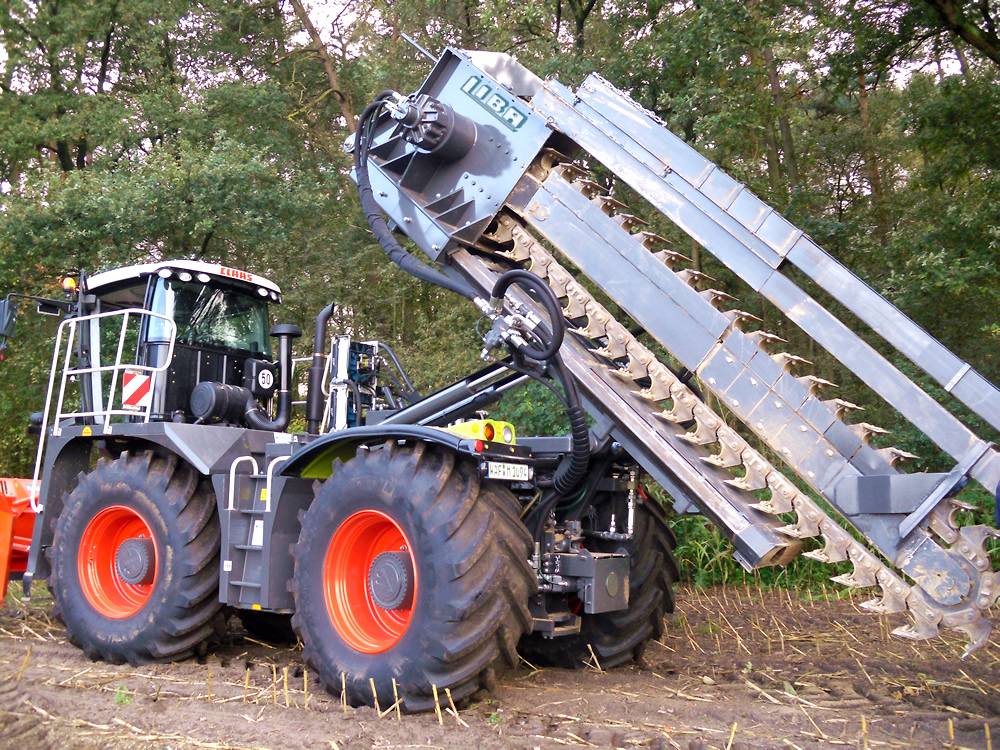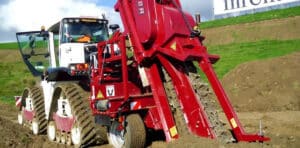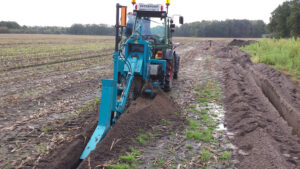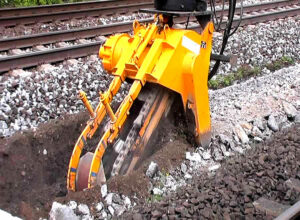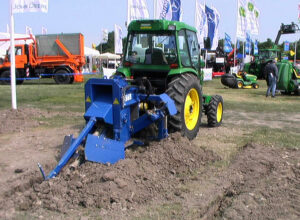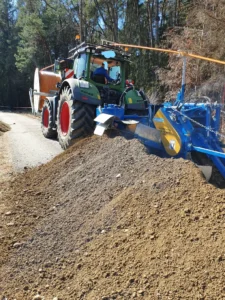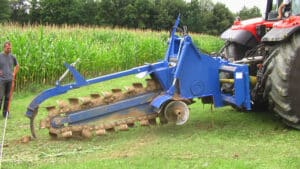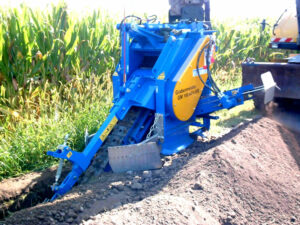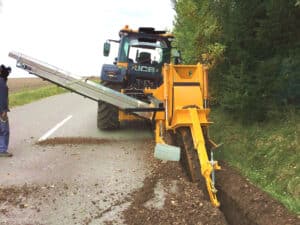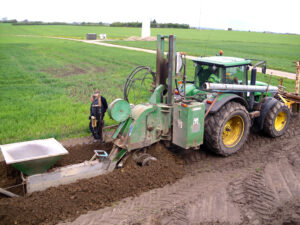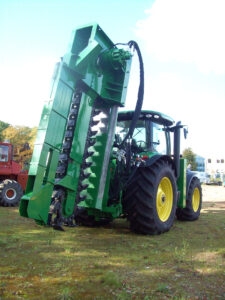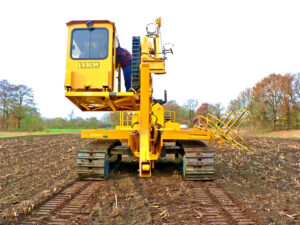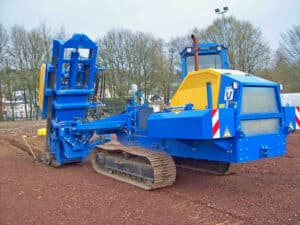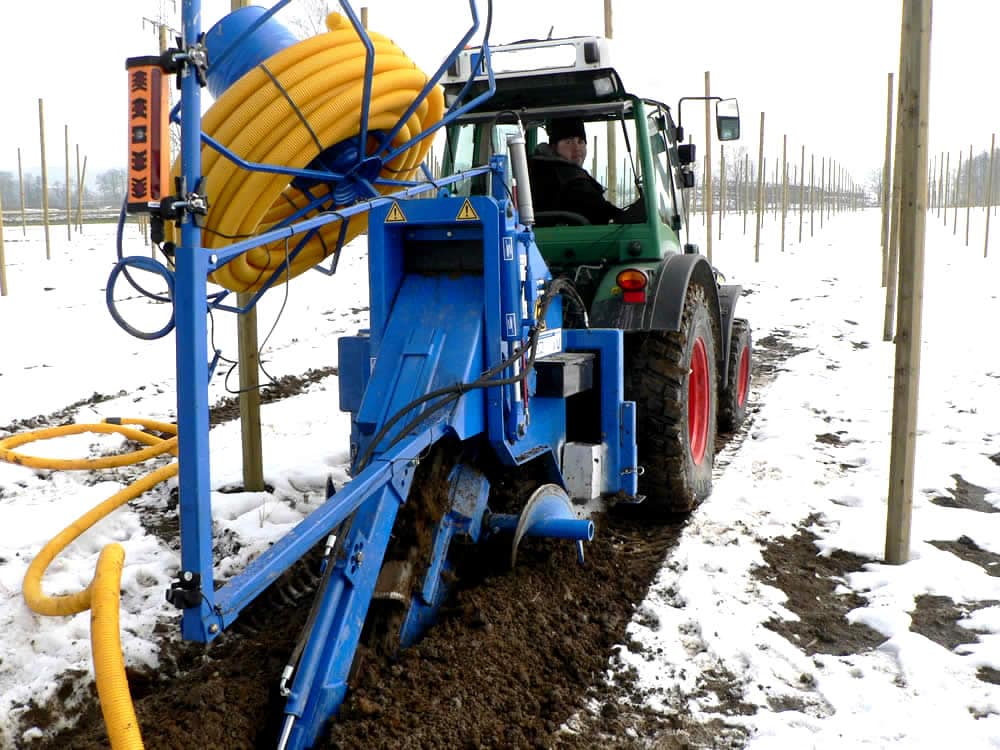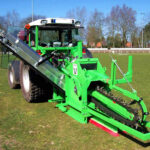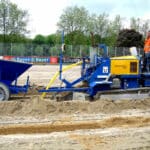Agriculture has been one of our biggest fields of application for ages. Already many farmers work with our machines and can thus do their work optimally. The possibilities of use are very different and diverse. Here are some ways a trencher can be used in agriculture:
- Creation of irrigation trenches: A trencher can be used to create trenches for the creation of irrigation systems. These ditches can help irrigate plants effectively for improved crop yields.
- Tillage: A trencher can also be used for tillage in agriculture. Here, the trencher can be used to create trenches for fertilizing or draining the soil. These trenches can help keep the soil nutrient-rich and well-drained for healthy plant growth.
- Creation of planting trenches: A trencher can also be used to create trenches for the creation of planting rows in agriculture. These trenches can help ensure that plants are planted effectively and with adequate spacing to improve growth and harvest.
- Creation of drainage systems: A trencher can also be used for the installation of drainage systems in agriculture. These ditches can help drain excess water effectively to protect plants from overwatering.
It is important that the trencher is selected according to the needs and requirements of agriculture and operated by qualified professionals to ensure safe and efficient use.
A trencher can also be used in agriculture, offering a number of advantages, such as:
- Efficiency: a trencher can excavate large amounts of soil in a short time, which helps to speed up the process of farming. This is especially useful when preparing fields or building irrigation systems.
- Precision work: A trencher is capable of digging trenches with high precision, which is an advantage when installing irrigation systems or drainage systems. This allows for better planning and more precise trenching, reducing the risk of rework.
- Less soil compaction: A trencher can work the soil more gently than other machines because it does not compact the soil as much. This can improve plant root growth and reduce the risk of soil erosion.
- Less damage to surrounding plants: A trencher causes less damage to surrounding plants than other digging methods such as hand trenching. The machine is also capable of working in tighter areas, reducing the risk of damage to neighboring plants.
To get a better insight into the performance and capabilities of the trencher working speed, we recommend you to watch our videos on https://lingener-baumaschinen.de/videos/. There you will find informative content and hands-on demonstrations that will show you how this machine can revolutionize your construction project. In addition to this, we invite you to visit our video channel on YouTube. There you will find more videos that provide detailed insights into the functions and use of the trencher working speed.
Examples of the use of a trencher in agriculture could be:
- Preparation of fields for sowing crops
- Installation of irrigation systems to improve irrigation efficiency and crop quality.
- Digging trenches for drainage systems to regulate soil moisture.
- Installation of cables for electric fences or lighting systems for the improvement of animal husbandry
- Excavation of trenches for the construction of slurry pits for waste disposal and fertilization of fields.
Suitable trenchers for work in agriculture are:
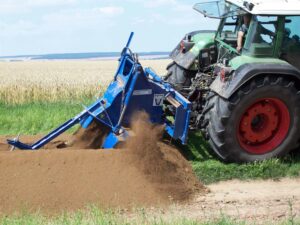
GM 160 AS – Trencher for drainage
Drainage with the GM 160 AS trencher from Lingener Baumaschinen. A powerful machine specially designed for use when laying drainage pipes. It is ideal for
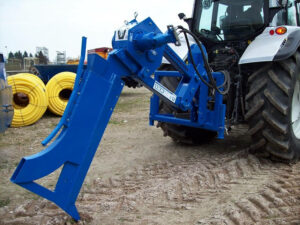
GMV 100 – working with a mounted plow
When it comes to efficient tillage and maximum yields, the mounted plow is an indispensable tool for farmers and agribusinesses. The cultivation plow is a
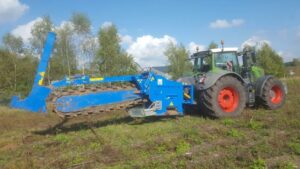
Cable laying with the GM 180 AF
Cable laying with the GM 180 AF The GM 180 AF trencher from Lingener Baumaschinen is a specialized machine for cable laying. It can effectively
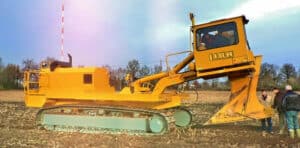
GM 1800 P – landscaping with trenchers
The GM 1800 P trencher from Lingener Baumaschinen is a specially designed machine for use in landscaping. This machine makes it possible to lay drainage


